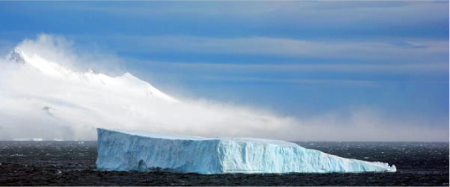| SEARCH |
-

Nov 17, 2015
Reflections on a three-decade legacy
The International Geosphere-Biosphere Programme (IGBP) will come to a close at t...
-
Nov 17, 2015
Use of and access to content on this website
Text and images produced by IGBP in house are free to use with appropriate credi...
-
Nov 12, 2015
Bella Gaia performance and panel discussion to mark IGBP's closure
A musical performance by Bella Gaia will celebrate the achievements and legacy o...
-

Towards Future Earth:
evolution or revolution?
During its three decades of existence, the International Geosphere-Biosphere Pro...
-
A personal note on IGBP and the social sciences
Humans are an integral component of the Earth system as conceptualised by IGBP. João Morais recalls key milestones in IGBP’s engagement with the social sciences and offers some words of advice for Future Earth.
-
IGBP and Earth observation:
a co-evolution
The iconic images of Earth beamed back by the earliest spacecraft helped to galvanise interest in our planet’s environment. The subsequent evolution and development of satellites for Earth observation has been intricately linked with that of IGBP and other global-change research programmes, write Jack Kaye and Cat Downy .
-
Deltas at risk
Around 500 million people worldwide live on deltas, but many of the world's deltas are sinking due ...
-
Climate change: the state of the science
A new data visualization released on the first day of the plenary negotiations at the UNFCCC’s clima...
-
Climate Change:
the State of the Science
Videos now online from the Stockholm public forum to mark the launch of the IPCC's climate report, 2...
Major viral impact on the functioning of benthic deep-sea ecosystems
Danovaro R, Dell´Anno A, Corinaldesi C, Magagnini M, Noble R, Tamburini C and Weinbauer M
Vol 454; pp. 1084-1087

Viruses are the most abundant biological organisms of the world's oceans. Viral infections are a substantial source of mortality in a range of organisms—including autotrophic and heterotrophic plankton—but their impact on the deep ocean and benthic biosphere is completely unknown. Here we report that viral production in deep-sea benthic ecosystems worldwide is extremely high, and that viral infections are responsible for the abatement of 80% of prokaryotic heterotrophic production. Virus-induced prokaryotic mortality increases with increasing water depth, and beneath a depth of 1,000 m nearly all of the prokaryotic heterotrophic production is transformed into organic detritus. The viral shunt, releasing on a global scale 0.37–0.63 gigatonnes of carbon per year, is an essential source of labile organic detritus in the deep-sea ecosystems. This process sustains a high prokaryotic biomass and provides an important contribution to prokaryotic metabolism, allowing the system to cope with the severe organic resource limitation of deep-sea ecosystems. Our results indicate that viruses have an important role in global biogeochemical cycles, in deep-sea metabolism and the overall functioning of the largest ecosystem of our biosphere.

IGBP closed at the end of 2015. This website is no longer updated.
-

Global Change Magazine No. 84
This final issue of the magazine takes stock of IGBP’s scientific and institutional accomplishments as well as its contributions to policy and capacity building. It features interviews of several past...
-

Global Change Magazine No. 83
This issue features a special section on carbon. You can read about peak greenhouse-gas emissions in China, the mitigation of black carbon emissions and the effect of the 2010-2011 La Niña event on gl...
-
INTERGOVERNMENTAL PANEL ON CLIMATE CHANGE:
How green is my future?
UN panel foresees big growth in renewable energy, but policies will dictate just how big.
-
UK:
'The Anthropocene: a new epoch of geological time?'
Royal Society, Philosphical Transactions A




















